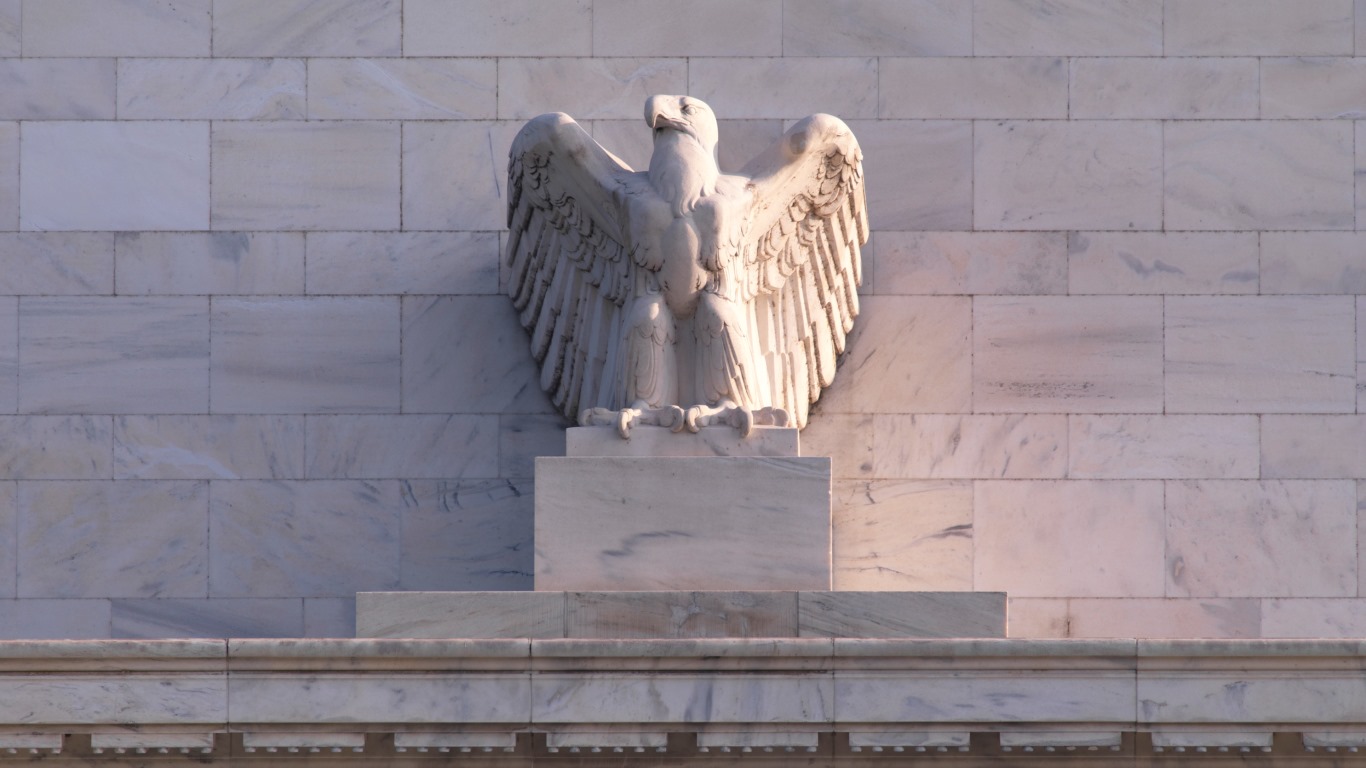Economy
Beyond Rate Cuts, How Can Governments Boost the Economy During a Pandemic Outbreak?

Published:
Last Updated:

The economic fallout from the COVID-19 outbreak has felt like a pandemic whether it has been classified that way or not. While the first concern should be about those who are ill and who have lost loved ones, the novel coronavirus already has created a very negative impact on the global economy. The U.S. stock market has gone from record highs to a formal correction (a 10% drop or more) in just two weeks. The public knows there is no cure and no vaccine for the coronavirus and testing is spotty.
One of the biggest concerns in the financial markets at this time is that governments and central banks have few obvious policy tools to help keep their economies going if what was seen in China happens in the United States and elsewhere.
With the United States seeing its stock market fall more than 10% in less than two weeks and with the long-term U.S. Treasury yields hitting record lows, the writing is on the wall that economic risks are rising. Some investors, analysts and economists are beginning to expect some sort of coordinated central bank action. The question is when and what tools can be used.
China already has begun returning its workforce back to some normalization, but the spread of the coronavirus has moved into higher numbers in South Korea, Japan, Iran, Italy, other parts of the Middle East and elsewhere. The United States has yet to see wide outbreaks. School districts are making preparations about school closures if needed, and many companies have started at least internal discussions about what options they have for their offices and for their workforce if the coronavirus outbreak becomes widespread as the Centers for Disease Control and Prevention (CDC) has warned.
24/7 Wall St. would warn against expecting major economic supportive actions just because the stock market is down. That said, it’s important to consider what the governments and central banks can do to help the public during any pandemic scare. Until there are layoffs and more direct impacts on other non-travel aspects of spending, the U.S. Federal Reserve and central banks from China, Japan, Korea, Europe and elsewhere would at least be considering what sort of accommodative actions they can take and are willing to take.
It has become assumed in the past few days that the Federal Open Market Committee (FOMC) will lower interest rates far faster than they communicated even a week or two ago. One problem for 2020 is that interest rates in Europe and Japan are already at negative yields, and record low yields in long-term U.S. Treasury rates may mean that cutting interest rates might have a limited impact.
Let’s just assume that the Federal Reserve will lower interest rates and that even the other central banks that already have lower or negative interest rates make rate cuts again. Lessons of the Great Recession, terrorist attacks, natural disasters and other events in the past may hold some lessons for what central banks and the U.S. government could do beyond rate cuts to stimulate the economy even if the coronavirus becomes much more widespread in the United States and elsewhere.
The public needs to understand that some of these actions may not exactly be legal or constitutional, but that doesn’t mean they are criminal acts. In times of need, particularly in a crisis, sometimes bold steps that are not in the playbooks are required.
During times of natural disasters like hurricanes and storms, the private sector on its own has allowed for loan relief. The government can backstop these efforts so that companies do not have to feel the full brunt of those delays, and that is not just the U.S. government.
The U.S. Treasury has allowed for longer delays in tax filings and has delayed some payment dates and other penalties for those people who have been in affected areas. The U.S. tax filing date of April 15 is just a month and a half away, and if the coronavirus does expand into an outbreak around multiple geographies in the United States, the Treasury could allow for delays.
It seems hard to imagine that the United States would again cut taxes in 2020. How that would help in a viral outbreak may be questionable, but cutting taxes is a tool that leaves additional funds in the public’s bank accounts.
Some members of Congress already have shown ignorance over who Ben Bernanke is, but there was a time when the chair of the Federal Reserve, who took the role after Alan Greenspan, was called “Helicopter Ben” before becoming chair. His use of the term signaled a potential tool to fight deflation and to avoid when systemic breaks occur. The term “helicopter money” actually is credited to economist Milton Friedman. The implication is effectively dropping money out of helicopters to the public and institutions, but that could be seen via many types of efforts.
Thank you for reading! Have some feedback for us?
Contact the 24/7 Wall St. editorial team.